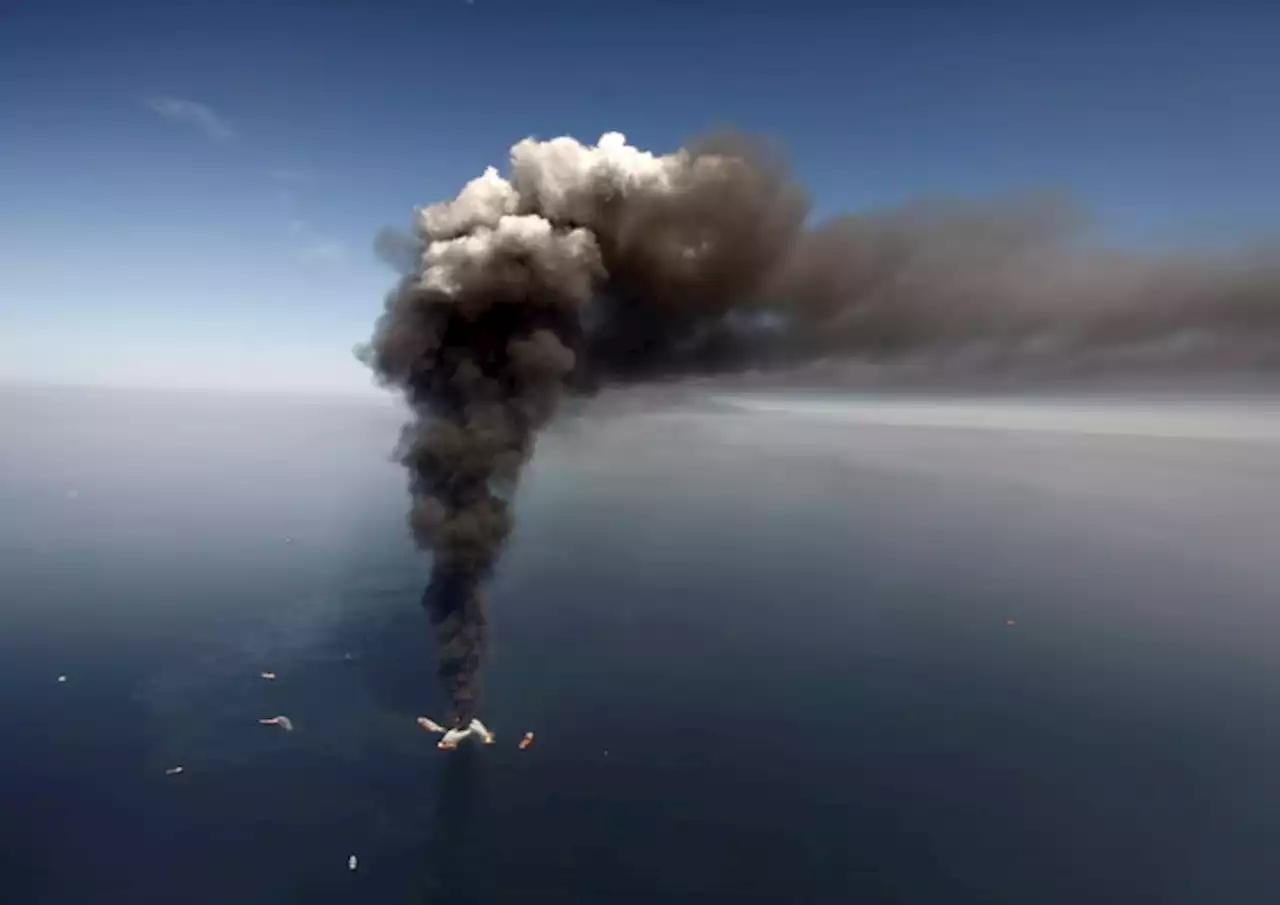A new National Academy of Science study says that 13 years after a massive BP oil spill fouled the Gulf of Mexico, regulators and industry have reduced some risks in deep water exploration in the gulf but some troublesome safety issues persist.
regulators and industry have reduced some risks in deep water exploration in the gulf but some troublesome safety issues persist, a new study by the National Academy of Sciences said.
"There are a lot of things that are happening that are really good, but the industry is not at a place'' where it should be, said panel chairman Richard Sears. He was a longtime Shell executive who was the chief technical adviser to the federal panel that initially investigated the 2010 explosion on the BP rig that killed 11 people and caused America's biggest oil spill — more than 130 million gallons.
That's far different from the more uniform industrywide safety culture seen in commercial airlines and nuclear power plants, he said. Another outside scientist involved in the spill, Christopher Reddy of the Woods Hole Oceanographic Institution, said he was impressed by “the amount of positive change since 2010” but then that was offset by the safety culture issue.
Australia Latest News, Australia Headlines
Similar News:You can also read news stories similar to this one that we have collected from other news sources.
 Oil drilling in Gulf safer, but concerns linger, report saysA new National Academy of Science study says that 13 years after a massive BP oil spill fouled the Gulf of Mexico, regulators and industry have reduced some risks in deep water exploration in the gulf but some troublesome safety issues persist.
Oil drilling in Gulf safer, but concerns linger, report saysA new National Academy of Science study says that 13 years after a massive BP oil spill fouled the Gulf of Mexico, regulators and industry have reduced some risks in deep water exploration in the gulf but some troublesome safety issues persist.
Read more »
 Oil drilling in Gulf safer, but concerns linger, report saysA new National Academy of Science study says that 13 years after a massive BP oil spill fouled the Gulf of Mexico, regulators and industry have reduced some risks in deep water exploration in the gulf but some troublesome safety issues persist.
Oil drilling in Gulf safer, but concerns linger, report saysA new National Academy of Science study says that 13 years after a massive BP oil spill fouled the Gulf of Mexico, regulators and industry have reduced some risks in deep water exploration in the gulf but some troublesome safety issues persist.
Read more »
 Gulf of Mexico oil worse for climate than thought, studyOffshore oil and gas operations in the Gulf of Mexico give off much more methane emissions than official estimates, according to a study published Monday
Gulf of Mexico oil worse for climate than thought, studyOffshore oil and gas operations in the Gulf of Mexico give off much more methane emissions than official estimates, according to a study published Monday
Read more »
 Gulf of Mexico oil worse for climate than thought, studyOffshore oil and gas operations in the Gulf of Mexico give off much more methane emissions than official estimates, according to a study published Monday.
Gulf of Mexico oil worse for climate than thought, studyOffshore oil and gas operations in the Gulf of Mexico give off much more methane emissions than official estimates, according to a study published Monday.
Read more »
 Gulf of Mexico oil worse for climate than thought, studyOffshore oil and gas operations in the Gulf of Mexico give off much more methane emissions than official estimates, according to a study published Monday.
Gulf of Mexico oil worse for climate than thought, studyOffshore oil and gas operations in the Gulf of Mexico give off much more methane emissions than official estimates, according to a study published Monday.
Read more »
 Here's what we've learned from NASA's DART asteroid-slamming mission so farRobert Lea is a science journalist in the U.K. whose articles have been published in Physics World, New Scientist, Astronomy Magazine, All About Space, Newsweek and ZME Science. He also writes about science communication for Elsevier and the European Journal of Physics. Rob holds a bachelor of science degree in physics and astronomy from the U.K.’s Open University. Follow him on Twitter sciencef1rst.
Here's what we've learned from NASA's DART asteroid-slamming mission so farRobert Lea is a science journalist in the U.K. whose articles have been published in Physics World, New Scientist, Astronomy Magazine, All About Space, Newsweek and ZME Science. He also writes about science communication for Elsevier and the European Journal of Physics. Rob holds a bachelor of science degree in physics and astronomy from the U.K.’s Open University. Follow him on Twitter sciencef1rst.
Read more »
